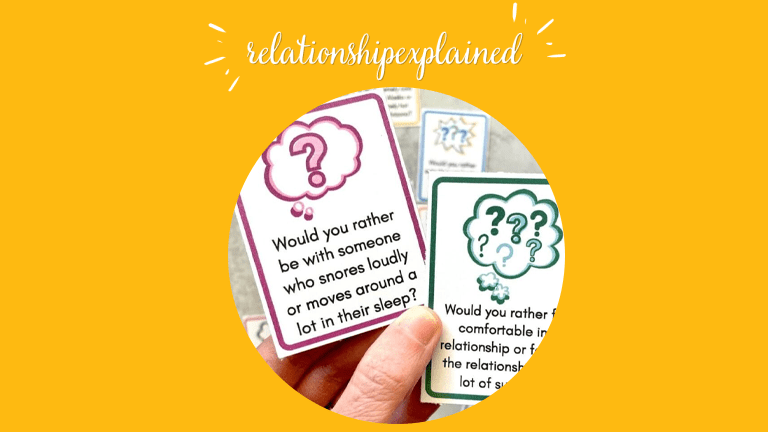Do Relationships Work At Different Universities?
Relationships at different universities can work, but they face challenges because of long distances, busy schedules, and new social circles. Success depends on communication, trust, and commitment from both partners to navigate these obstacles and maintain a strong connection amidst the academic and personal demands of university life.
In the bustling world of academia, where knowledge intertwines with youth, a captivating question emerges: do relationships work at different universities?
Beyond the pursuit of higher education, the corridors of these institutions often become the stage for love and romance. But amidst the whirlwind of assignments, exams, and new experiences, can relationships endure the test of time and distance?
Join us on a journey through the labyrinth of campus romances as we delve into the tales of heartbreak and triumph. We explore the unique dynamics that unfold when young hearts collide across diverse academic landscapes. So, get ready to unravel the secrets of love at universities!
Challenges To Relationships At Different Universities
1. Long Distances
Long-distance relationships between partners attending different universities present a unique set of challenges. Transitioning from a familiar high school relationship to navigating the uncharted waters of a long-distance one can be overwhelming. As both partners immerse themselves in new academic and social environments, the physical separation may evoke feelings of loneliness and longing.
Moreover, the allure of making new friends in the university setting could potentially create insecurities or jealousy. Balancing time between nurturing the existing relationship and forging new connections can be daunting. And lack of trust and effective communication can lead to doubts and negatively impact the emotional connection essential for the survival of the relationship amidst the distance and dynamic changes.
2. Time Constraints
When a long-distance relationship begins, especially when the partners have been together for less than a year, attending different colleges can become a formidable hurdle. The initial excitement of new academic pursuits can be overshadowed by the struggle to find time for each other. As academic demands intensify, the window for communication and visits narrows.
Each partner must adapt to the unique rhythms of their respective institutions, leading to potential feelings of neglect or unavailability. The lack of shared experiences in these new environments may also trigger a sense of growing apart. In such a situation, making the relationship work requires a delicate balance of dedication, understanding, and compromise, which can be quite challenging for both individuals in different academic landscapes.
3. New Social Circles
As a long-distance relationship takes root, the allure of making new friends at the respective universities can pose a significant challenge. Amid the excitement of exploring novel social circles, there might be a subconscious fear of missing out on potential connections. In this pursuit, one or both partners may inadvertently neglect the needs of their romantic relationship.
The introduction of new friends, especially those of the opposite gender, may also trigger feelings of jealousy and insecurity. Maintaining trust in such situations may not be possible when that happens.
It may not be easy for the partners to communicate openly about their social interactions and address concerns. And striking a balance between nurturing existing friendships and preserving the romantic bond to make the long-distance relationship work can become quite difficult.
4. Lack Of Shared Experiences
When a long-distance college relationship begins, the transition from a committed partnership to navigating unfamiliar academic settings can be both thrilling and daunting. As each partner immerses themselves in the unique college experience, the lack of shared environments and experiences may create a sense of drifting apart. The college environment exposes individuals to new opportunities for personal growth and social interactions.
Amidst this newfound freedom, some may be tempted to explore many relationships or question the sustainability of their current commitment. Both partners must grapple with these uncertainties and honestly communicate their feelings and expectations. In such instances, building a strong foundation of trust and reaffirming their dedication to each other while navigating the uncharted territory of college life can be a major challenge.
5. Financial Stress
Maintaining financial equilibrium to sustain the connection in a long-distance relationship can be challenging. Frequent visits, travel expenses, and communication costs add up over time. For partners who have been in a committed relationship for only a few months, this financial burden may become overwhelming.
The dilemma of choosing between allocating funds for visits or managing day-to-day expenses may strain the relationship. Such stress can prevent partners from initiating open dialogue about financial limitations and finding cost-effective ways to stay connected.
6. Limited Communication
Limited communication and irregular access to technology can hinder a couple's ability to stay connected when attending different colleges. The physical intimacy that was once readily available becomes a distant memory, leaving both partners yearning for each other's touch.
Freshers' week, with its array of social events, can be particularly tough as one partner might feel excluded from the other's exciting experiences. While prioritizing quality communication is important, setting aside dedicated time for each other and finding creative ways to bridge the physical gap may not always be possible.
7. Fear Of Missing Out
The fear of missing out (FOMO) can create emotional challenges in a long-distance relationship involving partners attending different colleges. As each individual embarks on their unique college journey, there may be a sense of missing shared experiences from their high school relationship.
Attending separate colleges can lead to feelings of disconnect and isolation, especially during events or gatherings where friends are making memories together. Acknowledging the inevitable changes and finding ways to involve each other in new experiences can be incredibly challenging. But doing so is necessary to help the high school relationship survive and flourish amidst the evolving college landscape.
8. Emotional Stress
The emotional stress of being apart In a long-distance relationship where partners attend different universities can be palpable. Their desire to spend time together and the inability to do so can take a toll on both partners. While maintaining regular communication is essential, it cannot replace the tangible presence of a real relationship.
As each individual builds their social life in their respective locations, feelings of loneliness or missing out on shared moments may arise. Coping with these emotions requires understanding and empathy, and opportunities to cherish the moments when they can connect virtually or in person can be scarce.
How To Overcome The Challenges
1. Regular Communication
In a long-distance relationship, regular communication serves as the lifeblood that sustains the connection. Whether through texts, calls, or video chats, consistent interaction alleviates the pangs of separation and reaffirms the emotional bond. Expressing feelings, sharing daily experiences, and providing support become essential in fostering intimacy despite the physical distance.
Keeping communication channels open promotes transparency, helping partners navigate challenges and celebrate achievements together. Moreover, it nurtures a sense of being in the same place emotionally, even if geographically apart. Partners should cherish and prioritize these conversations, understanding that communication is the foundation upon which their long-distance relationship thrives, ensuring its endurance and strength.
2. Scheduled Visits
Scheduled visits play a pivotal role in nurturing long-distance relationships, offering young couples the chance to reconnect and create cherished memories. Despite being physically apart for extended periods, these moments of togetherness provide the opportunity for quality time and genuine bonding. Planning visits at regular intervals, even if separated by months or a few years, infuses excitement and anticipation into the relationship.
These face-to-face encounters enable partners to experience each other's worlds firsthand, strengthening their emotional connection. Whether exploring new places, engaging in shared interests, or savoring each other's company, these visits become the anchor that keeps the relationship resilient and filled with hope for the future.
3. Trust And Reassurances
In the uncharted territory of a long-distance relationship, trust and reassurance become the bedrock upon which love can endure. Entering new cities and different schools can evoke uncertainties, but fostering unwavering trust is paramount. Both partners must openly address any doubts or fears that arise, providing constant reassurance of their commitment to the relationship.
Setting an end date or discussing future plans together can create a sense of stability and hope, assuring each other that the distance is temporary. Demonstrating reliability and honesty further strengthens the bond, cultivating an environment where both partners feel secure, valued, and confident in their love's resilience.
4. Shared Hobbies
Amidst the challenges of a long-distance relationship in a new city, shared hobbies become a beacon of comfort and companionship. Feeling lonely or guilty about not being physically present dissipates as partners engage in activities they both enjoy. Exploring common interests or discovering new ones to pursue together fosters a sense of togetherness even from afar.
Whether it's reading the same book, watching TV shows simultaneously, or playing online games, shared hobbies provide a sense of closeness and bonding. These joint pursuits also create opportunities for meaningful conversations and emotional connection, reminding each other that despite the distance, they are still an integral part of each other's lives.
5. Financial Planning
Financial planning in a long-distance relationship can be the biggest challenge, especially when partners are in their final year of college. Feeling guilty about spending money on visits or communication expenses may arise. To overcome this hurdle, open communication is vital. Both partners should discuss their financial situations honestly and set a budget that works for them.
Exploring cost-effective ways to stay connected, like using free communication apps or planning affordable trips, can ease the financial burden. At the same time, they can ensure the relationship remains strong, allowing partners to navigate their final year of college with a sense of security and support.
6. Setting Priorities
During freshman year, setting priorities in a long-distance relationship becomes crucial, especially when facing different academic units and new experiences. It's essential to have open discussions about individual commitments and how to strike a balance between academics and the relationship.
Acknowledging the need for personal growth while nurturing the partnership fosters understanding. Partners must agree on communication frequency and ensure neither feels neglected. In case of overwhelming stress, considering a temporary break to focus on personal development is an option. Setting clear priorities and supporting each other's journey empowers the relationship to thrive amidst the transformative phase of freshman year.
7. Virtual Dates
In the context of a long-distance relationship, virtual dates offer a lifeline to connect, especially when partners are dealing with different academic units and meeting new people in their courses. These digital rendezvous enable them to share experiences, have fun, and stay emotionally close despite the distance.
Engaging in activities like online gaming, watching movies together, or attending virtual events fosters a sense of togetherness. Virtual dates help counter feelings of isolation and create a safe space for partners to continue building cherished memories, making the distance more bearable while navigating their respective academic journeys.
8. Embrace Independence
During the first year of a long-distance relationship, embracing independence is a pivotal point. It's crucial for both partners to recognize that they cannot experience "all the things" together. Encouraging each other to explore individual interests, join clubs, and make new friends fosters personal growth.
Trusting in the strength of the relationship allows for healthy autonomy. This sense of independence builds resilience and enriches the partnership, creating a supportive environment where both individuals can thrive personally and academically. It's a delicate balance that ensures the relationship flourishes while savoring the unique experiences of the college journey.
Final Thoughts
In the intricate web of college romances, the question of whether relationships work at different university finds its answer in the delicate interplay of diverse elements. From the challenges of distance and new social circles to financial burdens and academic pursuits, the journey may seem daunting.
However, armed with regular communication, scheduled visits, trust, shared hobbies, and prioritization, couples can overcome the odds. Embracing independence and acknowledging that individuals may experience different things is paramount.
As they navigate the first term and beyond, talking openly and investing effort into the relationship makes the seemingly insurmountable lot easier to conquer. With dedication and love, relationships can flourish despite the geographic divide.













